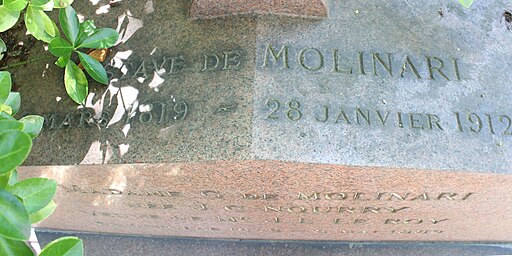Liberty Matters
A Question for My Colleagues: Who Wrote the First One-volume Synthesis of Classical Liberal Thought?

I would like to ask my colleagues a question before we close the discussion on Molinari’s legacy: Who wrote the first one-volume synthesis of classical-liberal ideas?
By this I mean an effort to present in one volume a coherent world-view based on the principle of individual liberty and the application of this principle to a large range of social, political, and economic problems. You might correctly surmise that by merely raising the question in this context, I suspect it was Molinari. If I am correct, then with the publication of Les Soirées, Molinari in 1849, at the age of 30, predated Rothbard’s For a New Liberty (1973 -- written when Rothbard was 47) [1] by some 124 years. A close contemporary attempt was Herbert Spencer’s Social Statics in 1851 (written when Spencer was 31 years old),[2] which raises the question of whether there was “something in the air” concerning classical liberalism in the mid-19th century.
It would not be until the 20th century that other attempts at synthesis were made by classical liberals and libertarians, such as Ludwig von Mises’s Liberalismus(1927 -- written when he was 46 years old) [3] and Milton Friedman’s Capitalism and Freedom (1962 -- written when he was 50), followed by Free to Choose (1980).[4]
So I am asking my colleagues if I have overlooked something. Is there some other text that attempts to do the same thing?
If I am correct in identifying Molinari as the first, then one needs to ask why it appeared when it did, and why didn’t a one-volume synthesis appear in the 18th century from someone like Adam Smith or Turgot?
A final observation: It seems that writing a one-volume synthesis in the 19th century was the work of young men starting out on their careers. In the 20th century, by contrast, it seems to be the work of men (along with Rose Friedman, of course!) who were well into their academic careers. Thus perhaps Molinari’s and Spencer’s efforts were ones of “prospective” analysis full of hope for the future, whilst those of Mises, Friedman, and Rothbard could be better described as reflections by mature scholars who feared for liberty in the present and the near future.
Endnotes
[1] Murray N. Rothbard, For a New Liberty (New York: Macmillan, 1973).
[2] Herbert Spencer, Social Statics: or, The Conditions essential to Happiness specified, and the First of them Developed, (London: John Chapman, 1851). <oll2.libertyfund.org/titles/273>.
[3] Ludwig von Mises, Liberalismus (Jena: Gustave Fischer, 1927). Translated into English by Ralph Raico in 1962. Ludwig von Mises, Liberalism: The Classical Tradition, trans. Ralph Raico, ed. Bettina Bien Greaves (Indianapolis: Liberty Fund, 2005). <oll2.libertyfund.org/titles/1463>.
[4] Milton Friedman (with the assistance of Rose D. Friedman), Capitalism and Freedom (University of Chicago, 1962); Milton Friedman and Rose Friedman, Free to Choose: A Personal Statement (Harcourt, Brace, Jovanovitch, 1980; Harmondsworth: Penguin, 1980).
Copyright and Fair Use Statement
“Liberty Matters” is the copyright of Liberty Fund, Inc. This material is put on line to further the educational goals of Liberty Fund, Inc. These essays and responses may be quoted and otherwise used under “fair use” provisions for educational and academic purposes. To reprint these essays in course booklets requires the prior permission of Liberty Fund, Inc. Please contact oll@libertyfund.org if you have any questions.